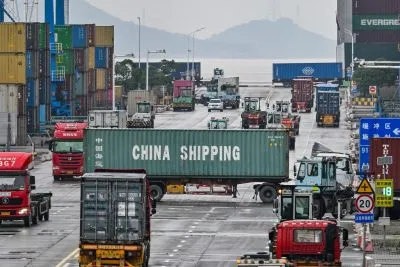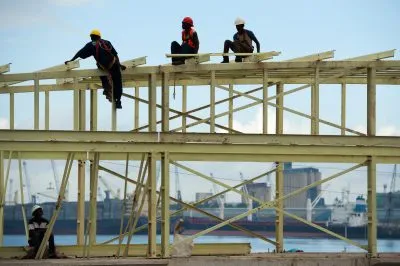Protests continued to rock the Tunisian capital Tunis on Thursday as citizens joined a rally held by judges against President’s Kais Saied’s recent decision to dissolve the Supreme Judicial Council (CSM).
On Sunday, the President attempted to abolish the CSM, which is tasked with ensuring judicial independence, accusing the institution of siding with his rivals, the Islamist-inspired Ennahda party, on politically sensitive investigations.
By Wednesday, the government had back-tracked on the dissolution of the body, with the justice minister telling Watania 1 TV channel that the CSM will be reformed, not abolished.
[The president] “has assured the defence of the Supreme Judicial Council as a constitutional body that guarantees the independence of the justice system” she said.
Amendments will be made to the law regulating the body with a temporary judicial authority set up in the meantime, she explained. No further details were given on the role and composition of the new body.
The upheaval comes as the International Monetary Fund plans a virtual mission to the country from 14-22 February to review Tunisia’s progress in implementing democratic and economic reforms that will help Tunis secure a loan from the Fund.
Political fireworks
In July, Tunisia’s president fired his long-time rival, Prime Minister Hichem Mechichi, and suspended the government as public frustration with the country’s worsening economy and handling of the pandemic boiled over.
While critics slammed the move as a coup, it raised hopes that Tunisia’s new government could unlock the political stalemate and pave the way to recovery and investment.
But recent events could hamper the country’s chances of shoring up its financial crisis with a much-needed IMF bailout, analysts say.
A 30-day state of emergency has turned into 18 months, while the CSM was one of the state’s last bodies acting independently of the government.
“The idea of Tunisia as a beacon of hope, and the one democracy to emerge from the Arab Spring, has been somewhat eroded,” says James Swanston, a Middle East and North Africa economist at Capital Economics.
“G7 condemned the developments and this could foreshadow tensions with the IMF – who are visiting virtually on Monday – and make it even more difficult to secure a fresh deal.
“This comes at a time when the external position is dire – the gross external financing requirement stands at 160% of FX reserves – and the government is locked out of international
capital markets.
“The concern is that the government is continuing down the path towards default.”
High-stakes IMF talks
Political turmoil and trade union opposition to tough IMF reforms further complicate already challenging negotiations.
“We expect 2022 to be another difficult year for Tunisia,” says Yasmine Ghozzi, a senior economist at IHS Markit.
“However, given Tunisia’s precarious fiscal position, some compromise will be attained this time and an IMF deal should be reached by end-April 2022.
“Securing the loan means unlocking the country’s potential to tap the international markets and restore investor confidence by improving its credit rating.”
At the height of the pandemic Tunisia saw a steeper decline in growth than most of its regional peers, having entered the crisis with slow growth and rising debt levels.
GDP growth contracted by 8.8% in 2020, while unemployment boomed from 15% prior to the Covid-19 to 17.8% by the end of the first quarter of 2021, according to the World Bank.
Hope on the horizon?
President Saied will seek to consolidate his power by continuing a crackdown on corruption and by continuing to target political opponents, says Yasmine Ghozzi.
“His medium-term objective is to pass a constitutional reform approved by a popular referendum that would secure the changes to the country’s political framework he’s introducing.
“Excluding major political parties from this process, however, will lead to increasingly politicised social upheaval.”
Further constitutional changes extending the president’s power are expected to be approved by referendum before end-July 2022, IHS Markit economists predict.
The 2022 budget has been set at $20bn, 2.3% bigger than the 2021 budget, bringing the fiscal deficit as a percentage of GDP to 6.2%.
The budget anticipates a total borrowing requirement of $6.4bn, while authorities revealed plans to borrow $7bn more from foreign lenders and domestic sources to prop the economy, says Ghozzi.
“Changes to the subsidy system, and possibly the public-sector wage structure, including a redundancy scheme, will be introduced in 2023. Fuel subsidies are also scheduled to be reduced in 2023 with further reductions up until 2025, but will not be completely removed.”
Want to continue reading? Subscribe today.
You've read all your free articles for this month! Subscribe now to enjoy full access to our content.
Digital Monthly
£8.00 / month
Receive full unlimited access to our articles, opinions, podcasts and more.
Digital Yearly
£70.00 / year
Our best value offer - save £26 and gain access to all of our digital content for an entire year!

 Sign in with Google
Sign in with Google 



